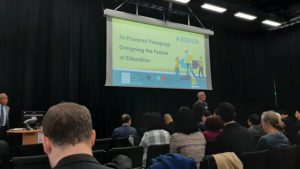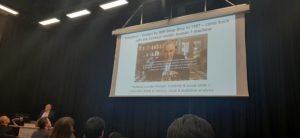Today, as we celebrate World Earth Day, CAVA reaffirms our commitment to fostering environmental awareness and sustainability through education. Since its start in 1970, World Earth Day has served as a global platform to address the impact of pollution, industrial development, and other environmental concerns. This year, the focus is on reducing plastic production by 60% by 2040, underscoring the urgency of environmental conservation. Learn more about this initiative on earthday.org.
CAVA’s Commitment to Sustainability
CAVA recognises the global challenge with regard to our changing environment, and the impact that our actions have upon it. For this reason CAVA is committed to operate according to strong ethical values, in a way that we achieve excellent results today, without compromising the needs of tomorrow.
Through our Net Zero strategy, we operate as a lean organisation, limiting our consumption and waste. Each year, CAVA offsets any essential emissions through investments in Verified Carbon Standard (VCS) certified carbon reduction programmes across the world. These programmes include carbon avoidance, clean and renewable energy generation. Many are within developing countries, where they also provide additional social benefits.
Mapping UN SDGs to Access to HE Diplomas
We believe education plays a pivotal role in climate action and we are dedicated to advancing education for sustainable development. As detailed in our previous blog, we believe the Access to HE Diploma contributes to global progress through its alignment with United Nations’ Sustainable Development Goals (SDGs). Our review has shown the qualification as a whole aligns with Quality Education (SDG 4), Gender Equality (SDG 5), Decent Work and Economic Growth (SDG 8), and Reduced Inequalities (SDG 10).
Recognising the importance of empowering students to actively contribute to sustainable practices in their respective fields, we believe it is crucial for all students to understand the principles of sustainability. By incorporating sustainability into their areas of study, students can play a vital role in fostering positive change during and after their education.
This academic year we have mapped the content of each CAVA Access to HE Diploma against the SDGs, using the UNESCO Education for Sustainable Development framework. This involved systematically reviewing each unit within our 25 Diploma frameworks to identify the implicit and explicit SDG related content. This comprehensive exercise has revealed the existing diverse range of SDG coverage within our Diplomas and identified areas for future development.
Moving forward, we aim to increase the number of SDGs covered by each Diploma framework. We have embedded sustainability into our validation and provider approval processes, to ensure it becomes an integral aspect of course creation and development.
Sustainability Resources for Educators
To support our dedicated course tutors in delivering impactful lessons on sustainability, CAVA has collected a rich library of resources. These resources, including articles, podcasts, videos, and more, are tailored to each Diploma and their relevance to the UN SDGs. Accessible through our Diploma sites, these resources aim to enrich the learning experience and promote a deeper understanding of sustainability.
If you are a member of the CAVA community, these resources are available through the Resources section of the CAVA Members Area. By providing these tools, we aim to empower our course teams to inspire our students’ commitment to environmental stewardship and sustainable practices.






